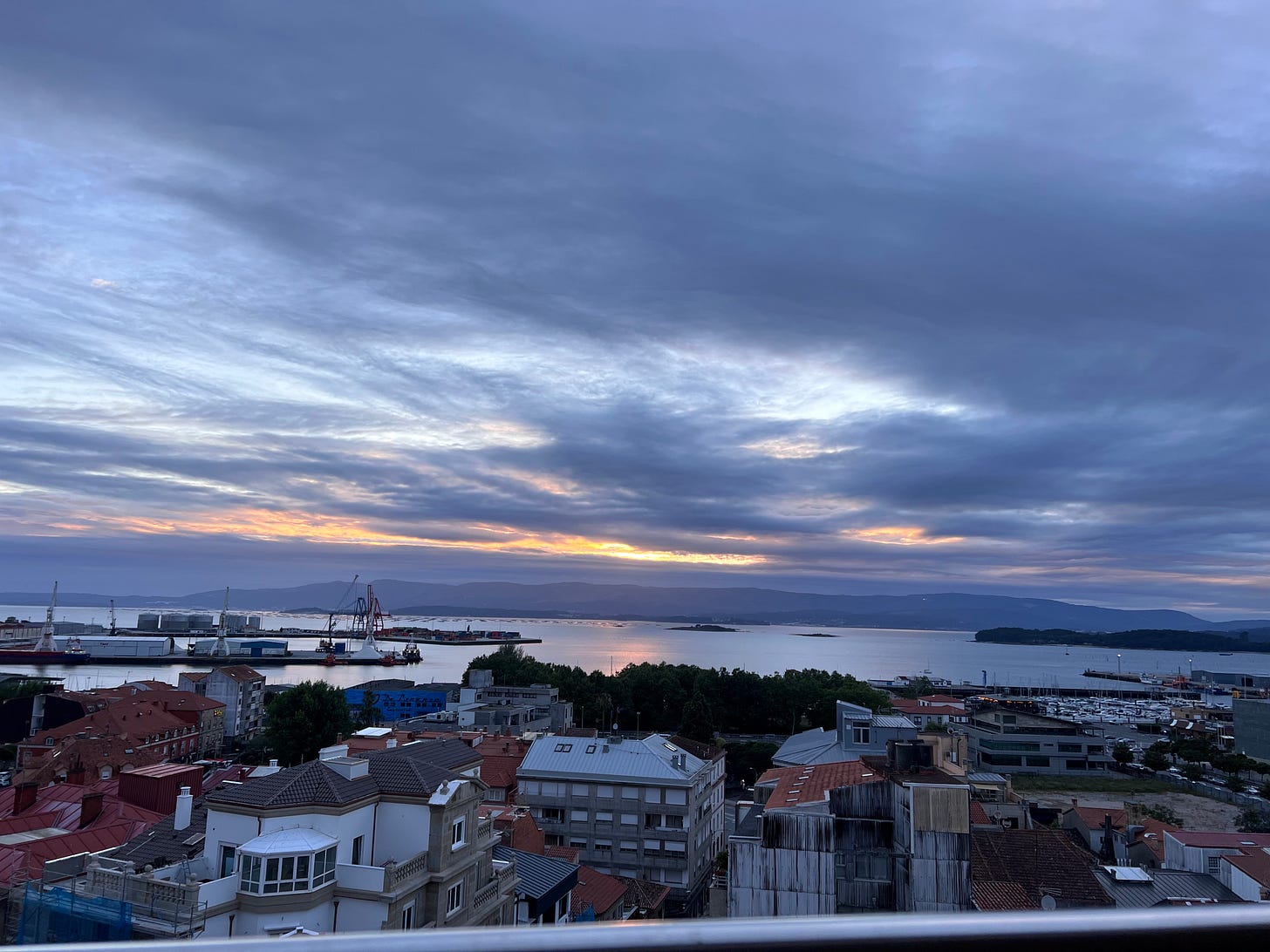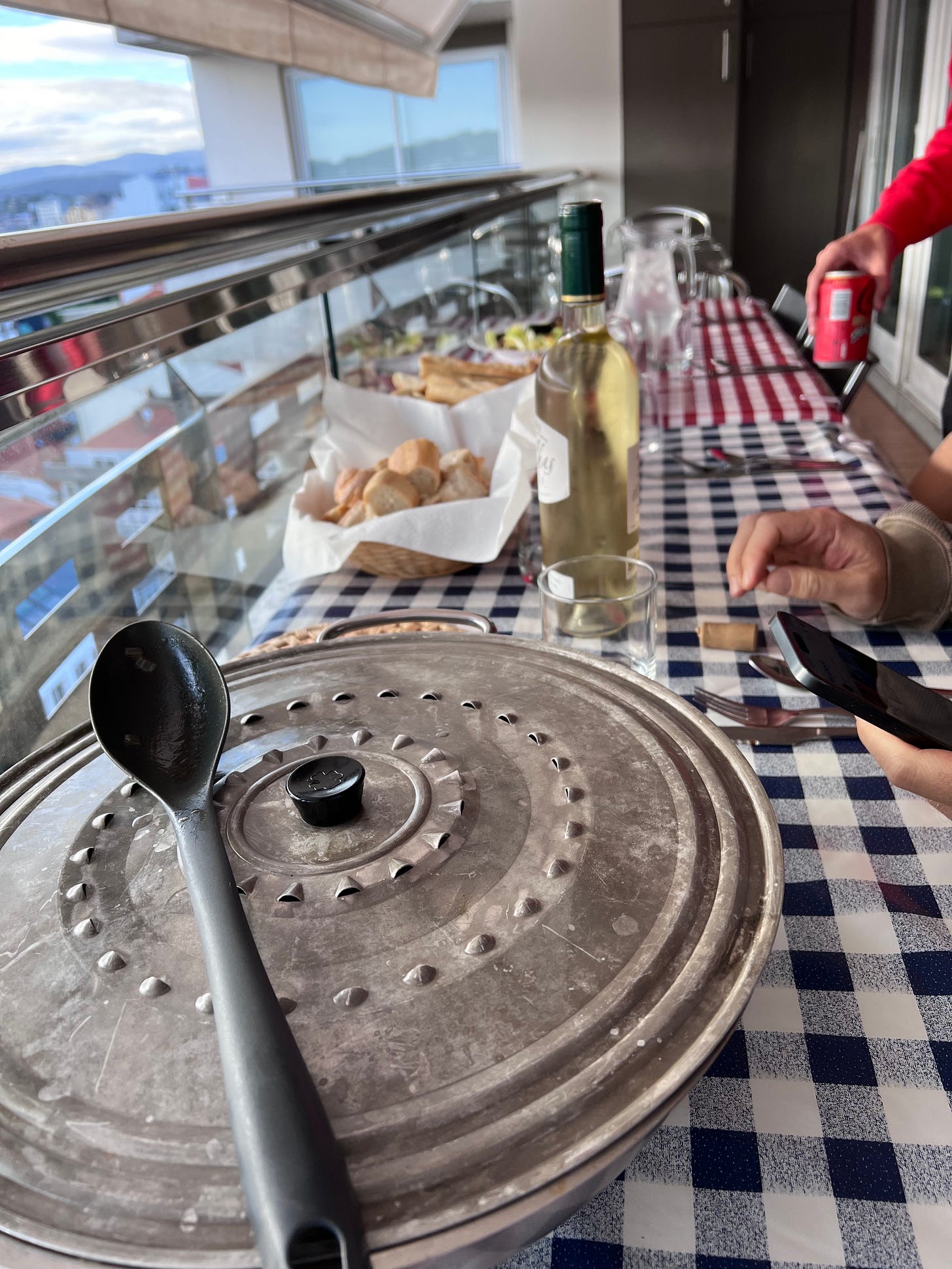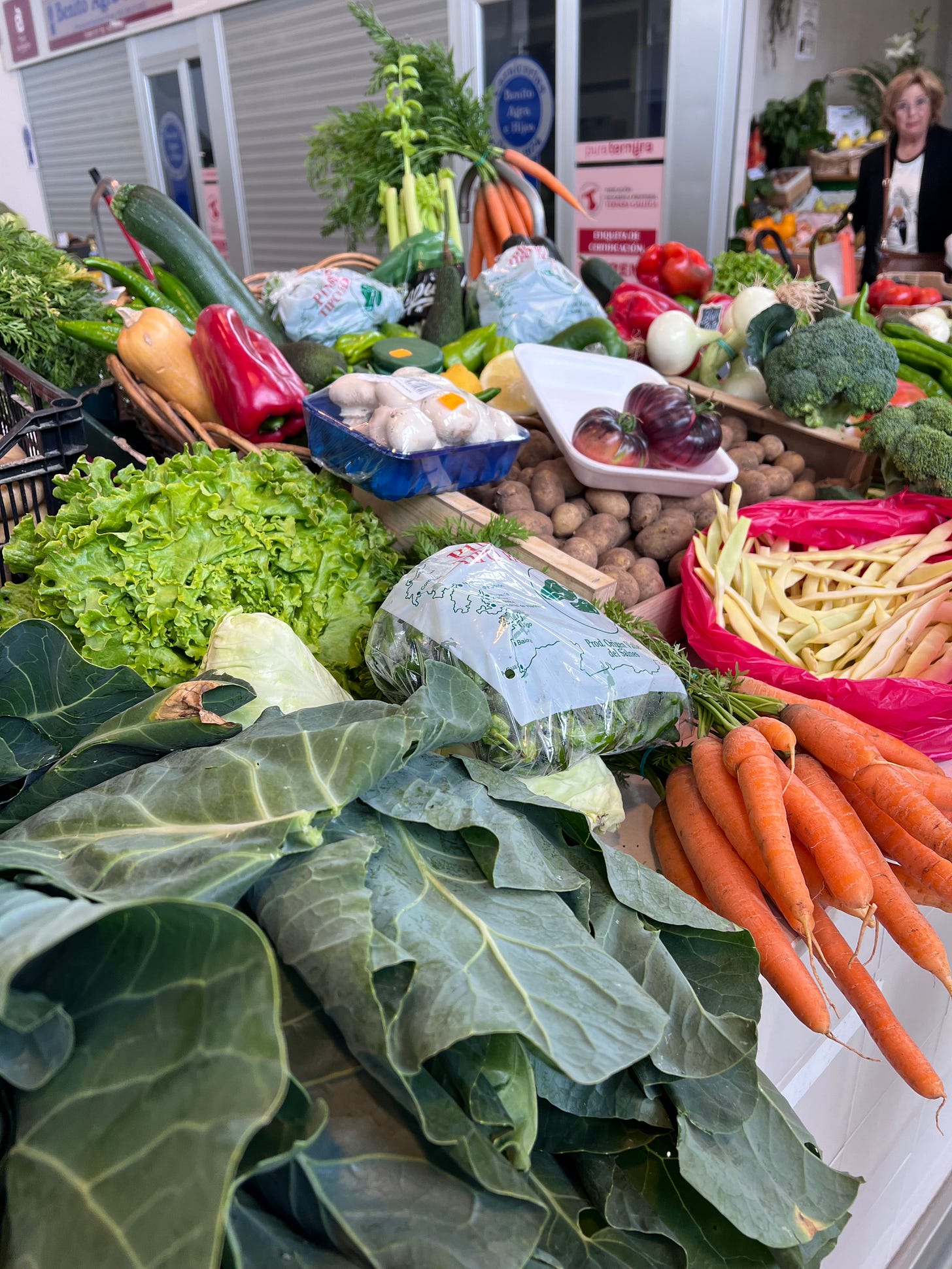Hello ♡,
My husband got into puzzles during the Covid-19 pandemic. Some people were making sourdough. We were collecting puzzles. We would sit down as a family to put these elaborate puzzles together on a folding card table. My husband found it very relaxing, I did not. I always felt so overwhelmed by the hundreds of pieces. Almost too overwhelmed to enjoy it. Any semblance of a coherent picture always felt very far out of reach.
I learned the strategy of starting with one small part of the puzzle. The green frog for example, and finding everything green in that part, and all the pieces around it. Less overwhelming for sure. But I still couldn’t help my tendency to survey the whole lot of pieces without order, and feel like the puzzle would never become orderly.

I see my tendency to want to order the entire puzzle all at once in my therapy work. Something doesn’t feel good in our lives. We have a bad week, a super anxious couple of days, or an unexpected irritable outburst, and we want to understand why. We look at the whole pile of puzzle pieces of our whole lives, and can’t make any sense of it. It is too overwhelming. We can’t make sense of the all the pieces.
That is where the puzzle strategy becomes very helpful in therapy work. In order to understand yourself, and why you just felt/acted/said something you didn’t expect, you need to start very small. I often like to think of it in terms of:
What happened 5 minutes before that hard moment?
What happened the night before?
What happened the week before?
Look very close to start. There is often much more evidence than you realize in the immediate context of that hard moment. Who were you talking to? Who did you just finish talking to? How did you sleep? What were you worrying about? What was happening in the news that day? My suspicion is you make sense. We just need to start with a couple pieces, not the whole pile. You may want to change some things about how you reacted, but starting with compassion first helps you to get to that change.
When a client tells me about a hard moment in which they seem perplexed by their feelings or reactions, I will always validate first. And then I will usually ask, what happened right before that? And then I might ask, what happened before that? And then, maybe even - what happened last week? I am not sure yet what I am looking for, but I am moving forward with a few essential things: curiosity, compassion, and an open mind. I have found over and over again that curiosity without judgement always leads us somewhere helpful.
We begin together to see the puzzle pieces making sense. Because here’s the thing: there is a picture that can be formed and understood. It may be as simple as low blood sugar and bad sleep that explains why you were irritable and anxious. Or it may be as complex as having a trauma response to something unexpectedly. I have sat with clients as they understand their anxiety this week is tied to their interactions last week. I have sat with clients as they piece together their irritability at home is tied to that tough interaction at work that day. I have witnessed countless moments of insight when we stay curious and start small.
You and your experience make sense, we just need to figure out how to put the puzzle pieces together.
And when you do, it’s such a relief. It’s like the satisfaction of fitting two puzzle pieces together. It can almost feel like an emotional “click” into place. I will often say to clients, “Look at how much you make sense. Of course that is how you felt, and what you were struggling with. When we put the pieces together it all falls into place.”

I find one of the biggest psychological reliefs for people is knowing they make sense. The pieces fit snugly together. Even if the hard thing is still hard, or they want to change a behavior they regret, understanding themselves is the first step. Knowing you make sense makes everything feel more manageable and helps empower you to have choices going forward.
This is something you can try yourself. When you are perplexed by a mood, a reaction, or a feeling - don’t judge it. Get curious. Begin asking what was happening in and around you right before. Start small! Just one corner of the puzzle. And then, keep going, piece by piece, until you begin to understand more about why. This won’t solve your whole life. It won’t put together the entire puzzle of your story. But it will empower you with a new corner of understanding, helping you to refine that skill of curiosity and lovingly reassure yourself that you make sense.

With great care, try picking up each piece of the recent event, and the pieces around it. Examine them with the care you would give someone you love. Listen, look, be curious, repeat.
With you,
Monica
New Still Becoming Episode
Episode 130: Conversation With Emily P. Freeman: How to Walk Into a Room
I am so excited to have author Emily P. Freeman on the podcast. I am such a fan, and I have been for a long time. I appreciate the way Emily shows up in the world and in her work. In a world that is always in a rush to make decisions, to certainty, and to judgement - Emily's work is refreshingly curious, patient, and spacious. In this conversation, and in her impactful new book How to Walk Into a Room, Emily invites us to look at endings and decisions in a helpful and wholistic way. We discuss how we moralize decisions, Emily's metaphor of rooms in our lives, and the idea of true peace and decisions. It is such a rich and layered conversation, and I can't wait for you to hear it.
Emily P. Freeman is the Wall Street Journal bestselling author of five books, including The Next Right Thing: A Simple, Soulful Practice for Making Life Decisions. As a spiritual director, workshop leader, and host of The Next Right Thing podcast (more than 25 million downloads), her most important work is to help create soul space and offer spiritual companionship and discernment for anyone struggling with decision fatigue. Emily holds a master’s degree in spiritual formation and leadership from Friends University. She lives in North Carolina with her family.
https://emilypfreeman.com/
https://www.instagram.com/emilypfreeman/
PS -
I will be taking the next couple weeks off from the newsletter and podcast while I spend time with family in Spain. My father is from Spain and we try to return every year. I look forward to resuming this series when I return! Until then, I will be here:
Optional Reflection:
If you were to be curious, without judgement, about this week - what would you notice?
We are currently in a Series called Therapy Notes: Small Bits of Wisdom From Inside the Room:
This series will offer insights I wish I could pass out for free (here goes), things that help me in my life, and certainly things I wish I’d known before I became a therapist. Scroll back through all of them if you are new here!
Therapy is both an art form and a collection of knowledge. Much of this knowledge is gleaned from the clinical research that informs the science of the field. However, the kitchen table version, simplified down to accessible takeaways, is where I see the most effective help. I hope this series will offer some wisdom from the practice of therapy. My own definition of wisdom is: knowledge you can actually use.







Yes, life is a dynamic on going puzzle. Great advice for how to continue solving it --piece by piece!! Thank you !